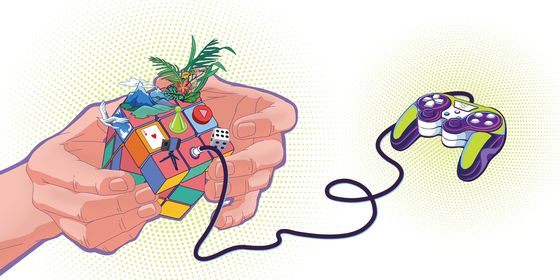A popular mobile game is blamed for misrepresenting historical figures
Was Tang dynasty luminary Li Bai a famous assassin or a poet? Was Bian Que, of the Spring and Autumn period, a doctor or expert in poisons?
Be careful of your answer, Chinese parents are already fretting over the possibility you may get it wrong.
King of Glory, a popular Chinese mobile game designed by Tencent Games, recently came under fire for “distorting history.” An article from Guangming Daily pointed out that though the game used many famous names from Chinese history, it completely misrepresented those figures. Basically, it’s prime material for people who love to wring their hands about how the young’uns aren’t respecting history like they should.
So, for chuckles, let’s play a game: what would your idea of history be if you learned it from this game?
In this game, there are more than 60 roles based on characters from different dynasties in Chinese history and some classic novels like The Journey to the West and The Romance of the Three Kingdoms. For example, famous poet Li Bai in the Tang Dynasty was depicted as an assassin, while famed doctor Bian Que from the Spring and Autumn Period became an poison expert. These characters travel through time and space, existing in the same world and fighting with or against each other. “They just adopt these names, but had no connection to the historical background and the real experiences of these figures,” the newspaper argued, adding that this characteristic could easily confuse young players.
![[duitang.com]](https://cdn-dev.theworldofchinese.com/media/images/timg-1-1_GFU163g.width-800.jpg)
Image of Li Bai in the game (duitang.com)

Image of Bian Que in the game (duitang.com)
King of Glory is a multiplayer online battle arena (MOBA) game, which was launched in 2015. In 2016, its total revenue reached 6.8 billion RMB, which was about 17.7 percent of the total revenue for mobile gaming in China. As is the case with many cultural products, its popularity among young people triggered concern. The Guangming Daily cited data from the game, saying that around 54 percent of the game’s players are aged between 11 and 20. Who will think of the children! If they are in the process of learning and understanding history, they might do it the wrong way!
But, perhaps we’re being a bit harsh—some people found that when searching online for certain names, information from the game popped up instead of the actual historical information.
The game of course, has its defenders, who argue that games should be encouraged to be creative and one can’t require games like “King of Glory” to be restricted to any specific historical period. They argued that it shouldn’t be the games that take the responsibility of educating kids. Some said that the game can do a lot of good, because if students become interested in the characters, they will probably do more research and learn more.
It’s not just the historical issues that have parents fretting though. Young people spending too much time or money on games also raises eyebrows, especially among parents of teenagers. In their eyes, games affect their kids’ growth and should be removed.
Tencent does seem to take these concerns seriously though. In order to manage juveniles playing online games, Tencent launched a new service called the “growth-protection platform”, which allows parents to connect their account with their underage children’s WeChat and QQ accounts. Then, when their children get online, log in to games or spend money, parents will receive reminders. They are allowed to set a limit on their kids’ game time and game consumption. There’s even a kind of doomsday button which restricts their kid from playing any Tencent game.
This “growth-protecting platform” triggered wide discussion on social media. Supporters believed such a service is an effective method to protect juveniles in the online world, while many more others felt it would be futile to try to supervise or even control young people in such a simple and crude way:

Primary schoolers are smart enough to apply for another secret account.

It must be because Tencent’s leaders got screwed by primary schoolers in King of Glory.
![]()
Sell a load of skins and equipment to kids first, then collect a “growth-protecting platform” membership fee from parents, after that, sell a “record-free game package” to kids, which will allow them to play games without being caught by parents…that’s just like earning money from the defendant after earning from the prosecutor, the circle is endless.

In the end you will find it is used by girls to control their boyfriends playing games.
By now, it hasn’t been heard that any kid is already “protected” by this service. If anyone hears something, please let us know.
Cover Image from 17173.com












